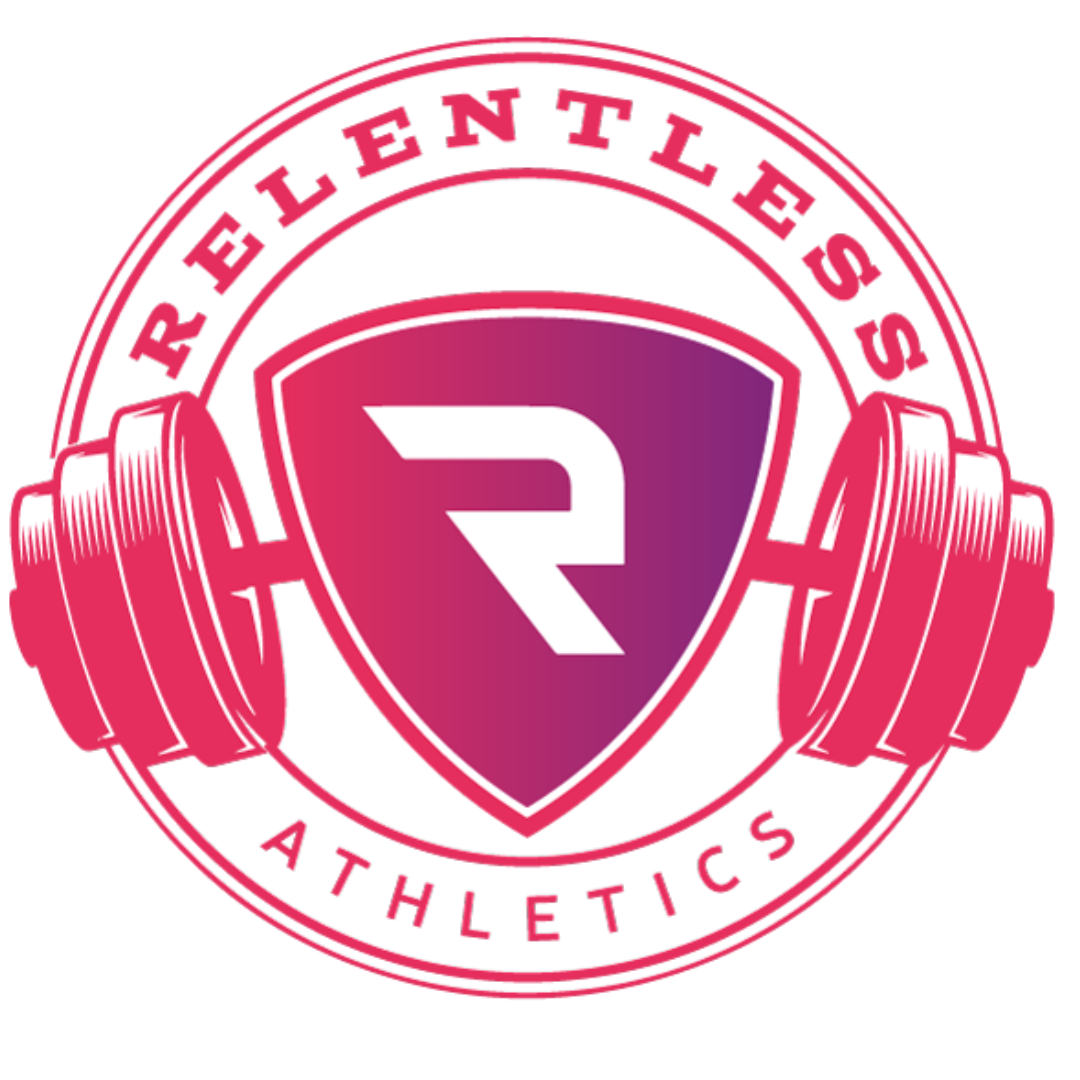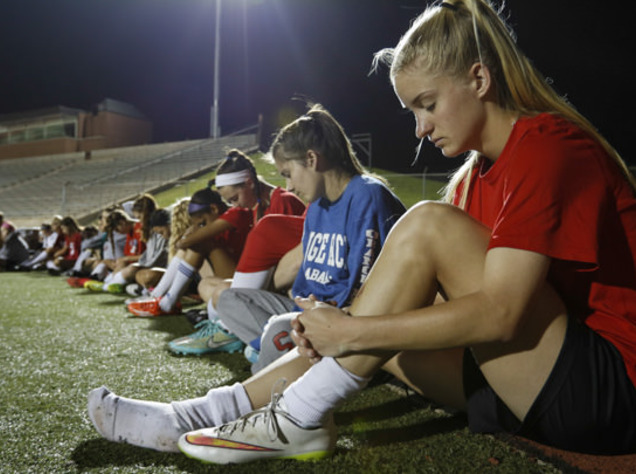Key Psychological Factors in ACL Recovery for the Female Athlete
By Dana Alimena
An ACL injury doesn’t only impact a female athlete’s physical ability but also her physical self-worth, quality of life, and mental and emotional health (Sims et al., 2018). The rehabilitation process can range from 6 months to 2 years. Research has shown that strength training and neuromuscular training are key factors in both the prevention of ACL injury and the rehabilitation process post-ACL surgery (Sims et al, 2018).
When we hear of ACL Return to Play programs the focus is usually on the physical aspect, what exercises to do, what kind of training to utilize, is the knee able to handle a certain load. Yet, fear of reinjury is the single greatest reason for failure to return to play (Ellman et al, 2015).
Thus, in order to optimize an athlete’s return to sport we need to include conversations, tools, and resources about psychological variables to not only support her recovery but her overall self-worth and quality of life.
This article will explore current data looking at various psychological and psychosocial factors that have proven to play a role in an athlete’s recovery, such as an athlete’s emotional state, confidence, environment, and social connections to help female athletes recover from ACL surgery.
Anxiety and Readiness to Play
An athlete may pass all the physical tests to return to their sport yet still feel anxious or unprepared.
While experiencing these fears can feel frustrating and scary, these feelings should not be ignored.
Lower psychological readiness to play is associated with higher anxiety, lower confidence, and an increased risk of re-injury (A. Ivarsson et al.).
Gaining confidence is easier said than done; however, there are significant ways to support your psychological readiness, just like your physical readiness, considering that each athlete progresses on their own time.
An athlete can work on developing her confidence by finding and working with a solid rehab team that she trusts (Podleg et al.), setting and achieving small goals (Johnson et al.), using positive self-talk, healing imagery (Podleg et al.), and turning towards social support.
Passing strength tests in the weight room can also help build confidence (Podleg et al.)
In a study on psychological distress and ACL surgery, anxiety was found to be the main predictor of pain 24 hours post-operation (Sims et al., 2018).
Our mindset about what our experience will be like influences our perception of the experience in real-time.
Psychological distress post ACL injury causes greater emotional disturbances, anxiety, depression, mood disturbances, pain intolerance, and a tendency to assume the worst (Sims et al 2018).
Athletes should look for ways to manage anxiety and stress better. This could be through psychotherapy, resting, engaging in activities you enjoy, dancing, taking in nature, or anything that feels grounding and relieving to the individual.
How the Rehabilitation Team Helps
An athlete’s relationship with their rehabilitation team also influences readiness to play.
A rehab team that the athlete trusts can help build confidence in their program, themselves, and their healthy return (Podlog et al, 2022).
Positive feedback, reassurance, and informational support from this trusted team may help reduce anxiety (Podlog et al., 2022).
As an athlete, you have the power to create your rehabilitation team.
While resources and insurance are limited, there are other options in finding a coach, mentor, recovery training buddy, or ACL support group to enhance your recovery experience and trust in the process.
That mental agility, or belief in self-efficacy, contributes to one’s confidence and return to play (Podlog et al., 2022).
Team Environments
Team culture can positively or negatively influence an athlete’s recovery and is even a risk factor for injuries (Ivarsson et al, 2019).
Sports culture promotes the notion that playing through pain is admirable, as it could demonstrate mental toughness and devotion to the team (Ivarsson et al., 2019).
This seemingly heroic act may encourage an athlete to return to play before being ready.
While returning to the sport may be a big motivation for an athlete’s recovery, they must return on their own time when they are psychologically ready.
Pressure from coaches or teammates to play may result in an athlete returning to play before they are ready, elevating stress, anxiety, and fear of re-injury, resulting in an increased risk of re-injury (Hildingsson et al., 2018).
In a study on sociocultural factors and emotions before ACL reconstruction, Ivarsson et al. found that “potential sources for these women’s injury problems might have had their roots in communication and relationship issues with the coaches, teammates, and the medical staff” (Ivarsson et al., 2019).
Quality, healthy coach-athlete relationships and the prioritization of the athlete’s well-being, especially when an athlete is in a vulnerable place coming back from an injury, may prevent future injuries.
Athletes need to be their own biggest advocates, while coaches should be sure to prioritize athletes’ overall health over pressure to perform to reduce injury risk.
Sports Culture
Sports culture also advocates that training more is better (Ivarsson et al. 2019).
In an athlete’s recovery, this mindset may lead to overtraining (Ivarsson et al, 2019), decreased motivation (Hildingsson et al, 2018), and burnout.
More does not inherently mean better. The injured athlete should find an individualized stress and recovery balance that works for them.
Coaches, administrators, and team leaders should be careful and intentional about the team and sports norms they reinforce with their athletes.
By prioritizing an athlete's well-being over the pressure to train more and return to play, it may coincidentally expedite the return to play process.
When an athlete experiences an injury like an ACL, it can be difficult to sit on the sidelines watching teammates play.
It’s normal to feel excluded (Johnson et al, 2016) and experience feelings of jealousy, shame, or anger.
While being forced to the sidelines can be really difficult, injured players have the opportunity to support their teammates and develop their mental and tactical skills.
Performing is part of an athlete’s role on a team, not all of it.
Even when unable to compete, injured athletes are valuable to the team. As coaches and teammates, creating an inclusive team environment and having supportive conversations with the injured athlete can help promote motivation and a sense of belonging (Johnson et al., 2016).
Relationships Matter
Through hard times it may seem easy to disconnect from the ones you love and isolate yourself from your team, friends, and family.
However, turning towards your loved ones, being vulnerable, connecting deeper, and engaging with coaches, teammates, partners, family, and friends provides compounding moments of relief to the psychological stress of injury, building resiliency in your recovery (Johnson et al., 2016).
Prioritizing connection with others in your recovery and feeling valued, wanted, and missed on your team supports your well-being and increases your motivation to commit to your recovery process (Podlog et al., 2022).
Social support from others should come without the pressure to succeed or return to sport (Hildingsson et al, 2018).
The physical and emotional challenges that come with injury open up an opportunity to be vulnerable and connect with those around you or to connect with online groups like the ACL recovery club to hear stories of athletes who have undergone the same surgery and share your own story.
Putting It All Together
Just like ACL injuries themselves, the rehabilitation and recovery process is multifactorial.
The variety of factors influencing psychological readiness shows the complexity of the human experience.
Emotional and mental health must be accounted for when balancing stress and recovery throughout ACL rehab.
More research should be done to understand better the role of psychological and emotional states in recovery, as women are underrepresented in the psychology of sports injury literature (Ivarsson et al., 2019).
The factors reviewed to optimize the psychological aspects of recovery include confidence, inclusive team environments, healthy coach-athlete relationships, and engaging in social connections.
It is important to remember that every athlete is different and has a unique set of individual needs; what works for one athlete may not work for another.
Some athletes may thrive in one environment where another athlete fails.
ACL recovery is a time to explore yourself, reflect, and recognize the environments you thrive in, then take action to find that community.
References
Andreas Ivarsson, Urban Johnson, Jón Karlsson, Mats Börjesson, Martin Hägglund, Mark B. Andersen & Markus Waldén (2019) Elite female footballers’ stories of sociocultural factors, emotions, and behaviours prior to anterior cruciate ligament injury, International Journal of Sport and Exercise Psychology, 17:6, 630-646, DOI: 10.1080/1612197X.2018.1462227
Ellman MB, Sherman SL, Forsythe B, LaPrade RF, Cole BJ, Bach BR Jr. Return to play following anterior cruciate ligament reconstruction. J Am Acad Orthop Surg. 2015 May;23(5):283-96. doi: 10.5435/JAAOS-D-13-00183. PMID: 25911661.
Hildingsson, M.; Fitzgerald, U.T.; Alricsson, M. Perceived motivational factors for female football players during rehabilitation after sports injury—A qualitative interview study. J. Exerc. Rehabil. 2018, 14, 199–206.
Johnson, U., Ivarsson, A., Karlsson, J. et al. Rehabilitation after first-time anterior cruciate ligament injury and reconstruction in female football players: a study of resilience factors. BMC Sports Sci Med Rehabil 8, 20 (2016). https://doi.org/10.1186/s13102-016-0046-9
Leslie Podlog, Ross Wadey, Jeff Caron, John J. Fraser, Andreas Ivarsson, John Heil, Stefanie Podlog & Tallie Casucci (2022) Psychological readiness to return to sport following injury: a state-of-the-art review, International Review of Sport and Exercise Psychology, DOI: 10.1080/1750984X.2022.2081929
Sims M, Mulcahey MK. Sex-Specific Differences in Psychological Response to Injury and Return to Sport Following ACL Reconstruction. JBJS Rev. 2018 Jul;6(7):e9. doi: 10.2106/JBJS.RVW.17.00170. PMID: 30063501.
ABOUT THE AUTHOR
Dana Alimena was a Relentless Intern who completed 500 hours of education and training curriculum in the fall of 2022.
Dana studied Organizational Studies with a minor in Spanish at Pitzer College !
She plays professional rugby and has experience with ACL injuries tearing her ACL 3x in her professional career.


















